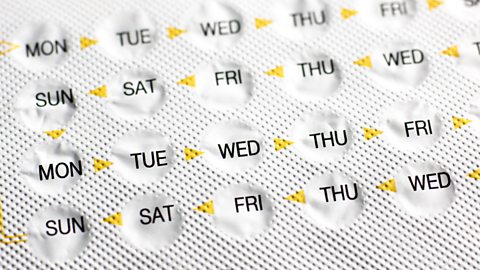Hormones and glands
A hormoneChemical messenger produced in glands and carried by the blood to specific organs in the body. is a chemical messenger.
Hormones are produced by endocrine glandAn organ or tissue that makes a substance for release, such as a hormone. and carried in the bloodstream. They alter the activity of specific target organThe organ with receptor molecules on its cell surfaces which recognise a specific hormone..
One example of this is the hormone adrenalineHormone produced by the adrenal gland and is released in times of fear or stress., which is released by the adrenal glandsGlands located on top of the kidneys which produce adrenaline.. One of its target organs is the heart, where it increases the heart rate.
Once a hormone has been used, and its action complete, it is destroyed by the liver.
The effects of hormones on the body are almost always much slower than the nervous system, but they last for longer.

There are important differences between nervous and hormonal control.
| Nervous | Hormonal | |
| Type of signal | Electrical (chemical at synapses) | Chemical |
| Transmission of signal | By nerve cells (neurones) | By the bloodstream |
| Effectors | Muscles or glands | Target cells in particular tissues |
| Speed of response | Very rapid | Slower |
| Duration of response | Short (until nerve impulses stop) | Long (until hormone is broken down) |
| Type of signal | |
|---|---|
| Nervous | Electrical (chemical at synapses) |
| Hormonal | Chemical |
| Transmission of signal | |
|---|---|
| Nervous | By nerve cells (neurones) |
| Hormonal | By the bloodstream |
| Effectors | |
|---|---|
| Nervous | Muscles or glands |
| Hormonal | Target cells in particular tissues |
| Speed of response | |
|---|---|
| Nervous | Very rapid |
| Hormonal | Slower |
| Duration of response | |
|---|---|
| Nervous | Short (until nerve impulses stop) |
| Hormonal | Long (until hormone is broken down) |
Master gland
The pituitary glandAn endocrine gland that is located just below the centre of the brain. It releases a number of important hormones., at the base of the brain, is known as a 'master gland'. It secretes several hormones that can act on other glands to stimulate the release of other types of hormone.
The endocrine system
The endocrine systemThe glands that release hormones into the bloodstream to regulate factors including metabolism, growth, development and reproduction. produces a range of different hormones that travel in the bloodstream and affect a number of different organs or cells in the body. The diagram shows the location of some of these glands.
Learn more about the human endocrine system with Dr Alex Lathbridge.
Listen to the full series on “óĻó“«Ć½ Sounds.
In this podcast, learn the key facts about the human endocrine system. Listen to the full series on “óĻó“«Ć½ Sounds.